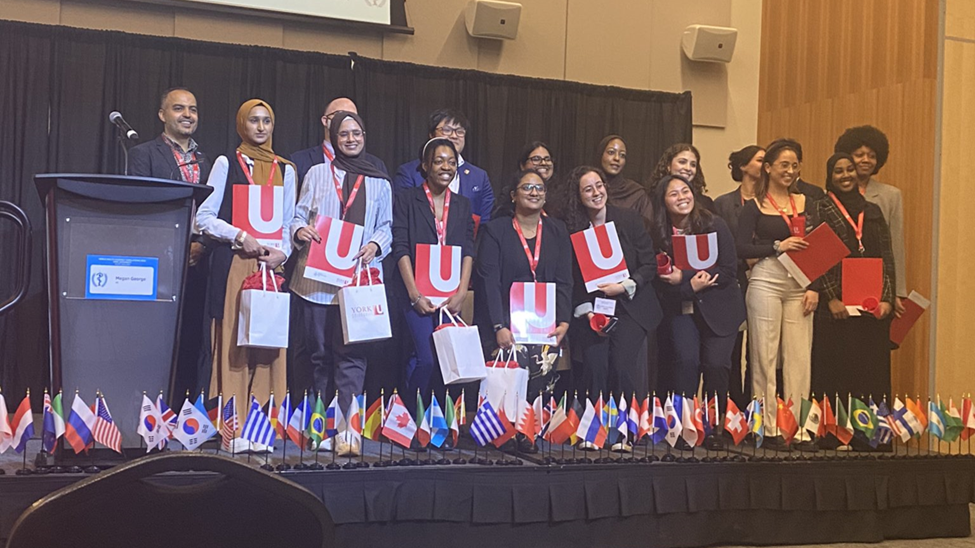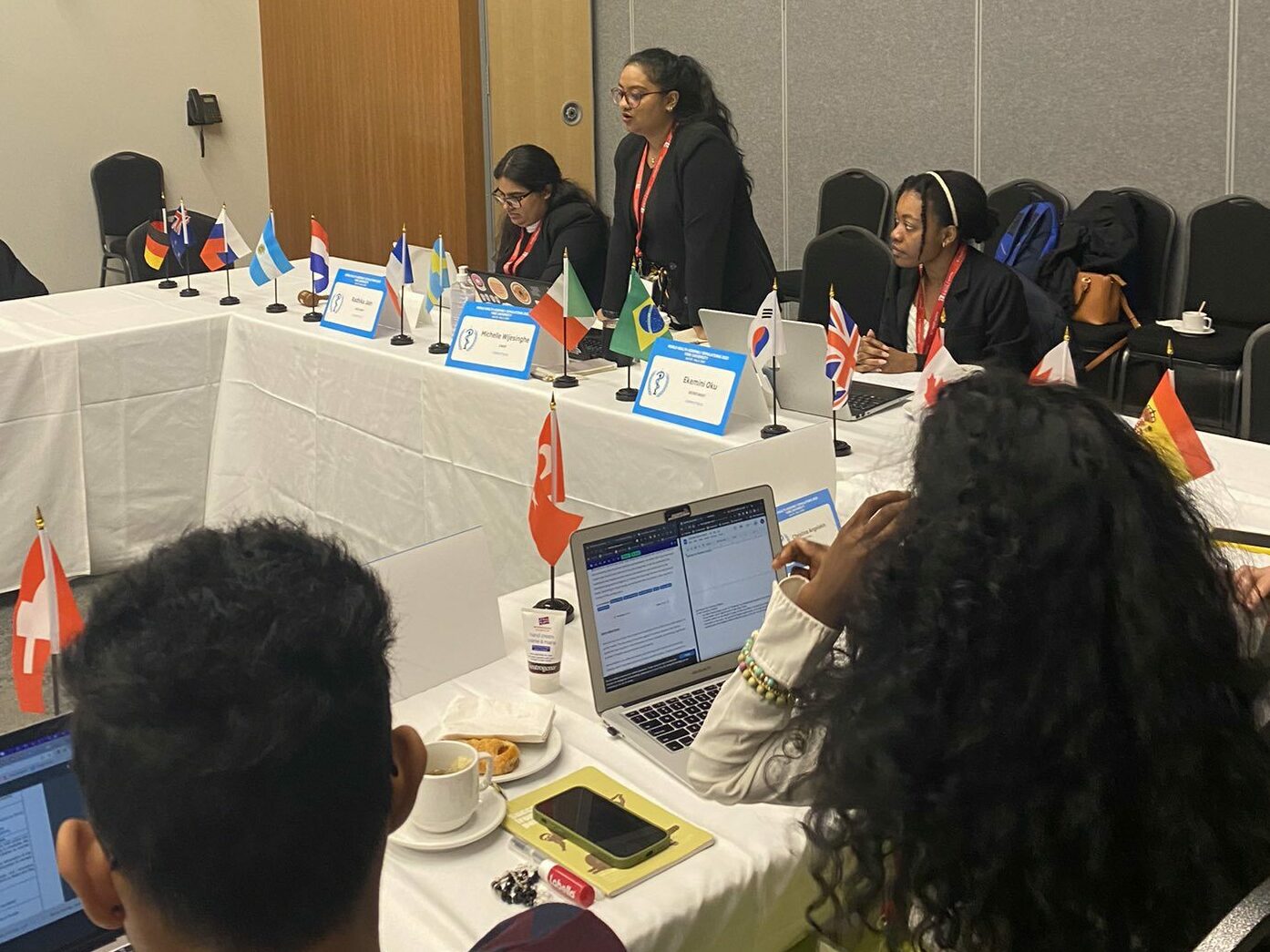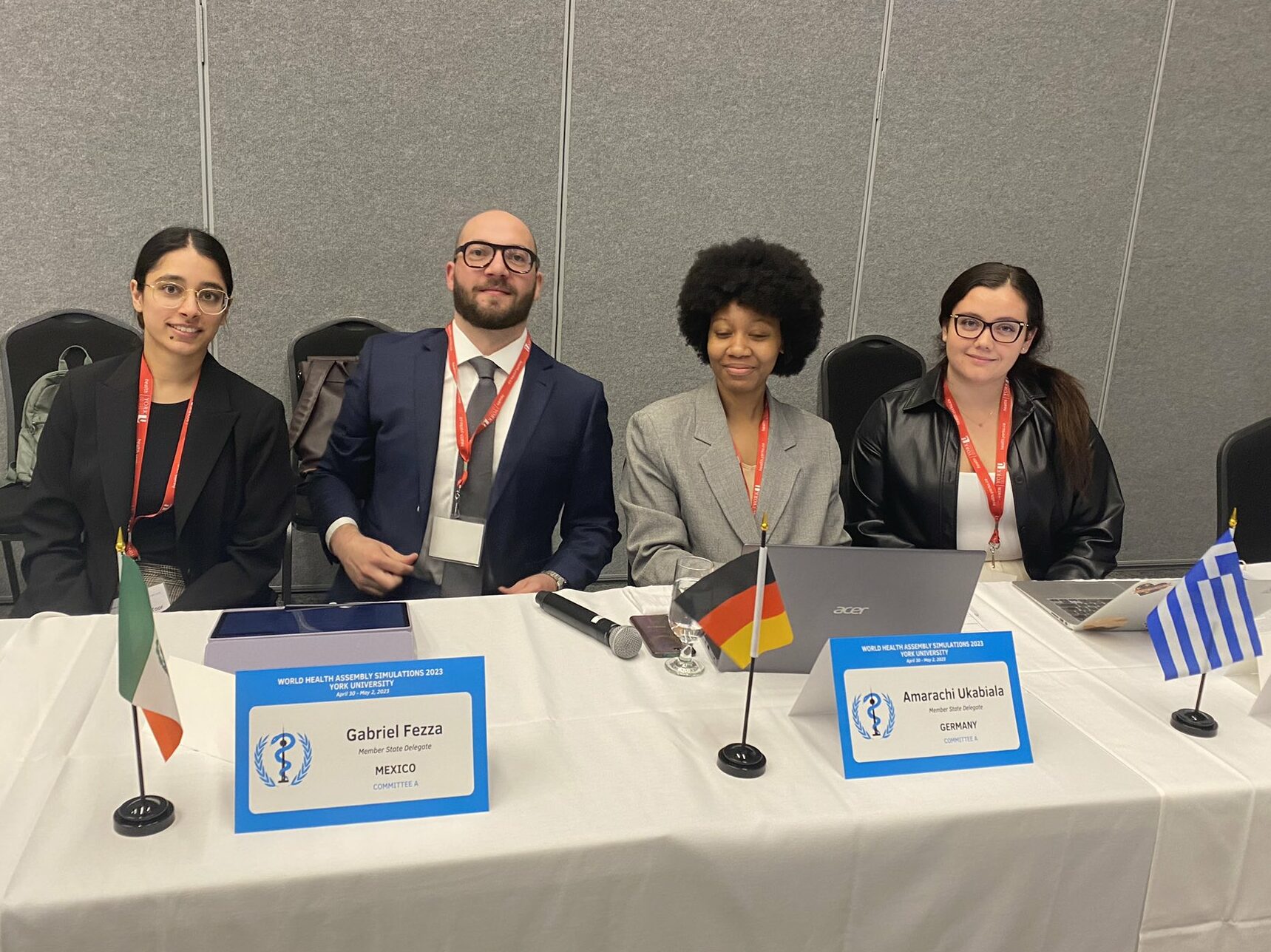
Learning about global health challenges including epidemics, health inequities, environmental disasters, the delivery of health care in conflict zones, and how to address those challenges in class is very different from trying to understand and make decisions on them in something resembling more of a real-world setting – as students at the World Health Assembly (WHA) Simulation discovered last spring.

Organized by York’s School of Global Health and held at York’s Keele campus in the new Second Student Centre on May 1st and 2nd, 2023, the purpose of the WHA Simulation (SIM) was to provide a simulation-based experiential learning initiative modeled after the World Health Organization's (WHO) supreme decision-making body. WHA SIM aimed to enhance students’ knowledge and skills in collaborative governance approaches that addressed multi-sectoral and multi-jurisdictional global challenges, akin to those encapsulated
in the United Nations’ Sustainable Development Goals (SDGs).
Students were able to develop and test innovative and feasible solutions centered around the simulation theme, expressed through research briefs, debates, and formal resolutions. The initiative's intent was to employ prior WHA SIM methodologies and experiential learning research to bolster the WHA SIM platform and simulation-based resources, enabling students to delve into global health governance, apply their global health insights in a real-world context, and refine their proficiency in research, collaboration, debate, diplomacy, and policy composition.
The WHA SIM was enriched by a diverse and esteemed group of guest speakers who played pivotal roles in shaping the discussions, including Dr. Tedros Adhanom Ghebreyesus, Director-General of the WHO, who delivered a personal message to the students via video link. Dr. James Orbinski, renowned humanitarian, physician and Nobel Peace Prize winner who accepted the 1999 Nobel Peace Prize on behalf of Doctors Without Borders/Médecins Sans Frontièrs while serving as international president, shared his experiences and expertise in delivering healthcare in conflict zones and underserved areas. Dr. Krishana Sankar, an award-winning researcher and scientist, shared her expertise on evidence-based approaches to disease prevention, outbreak management, and promoting population health.

In a post-event survey, 97 per cent of participants expressed a strong belief in the relevance of the topics covered during the simulation to their current and future fields of education, interests, and work opportunities. Another 86 per cent deemed the simulation to be “very effective” in highlighting key issues and challenges in global health. Said one survey respondent: "The simulation experience provided a practical context that allowed us to better comprehend the intricacies of how topics were discussed and how proposals were made and approved in the WHA, which although learned within the classroom, was better learned in the simulation." The survey results underscore the simulation’s invaluable role in providing a comprehensive understanding of the complex landscape of global health. By immersing students in a simulated environment that mirrors real-world scenarios, the simulation successfully enhances the necessary knowledge and awareness to tackle pressing global health challenges head-on.
